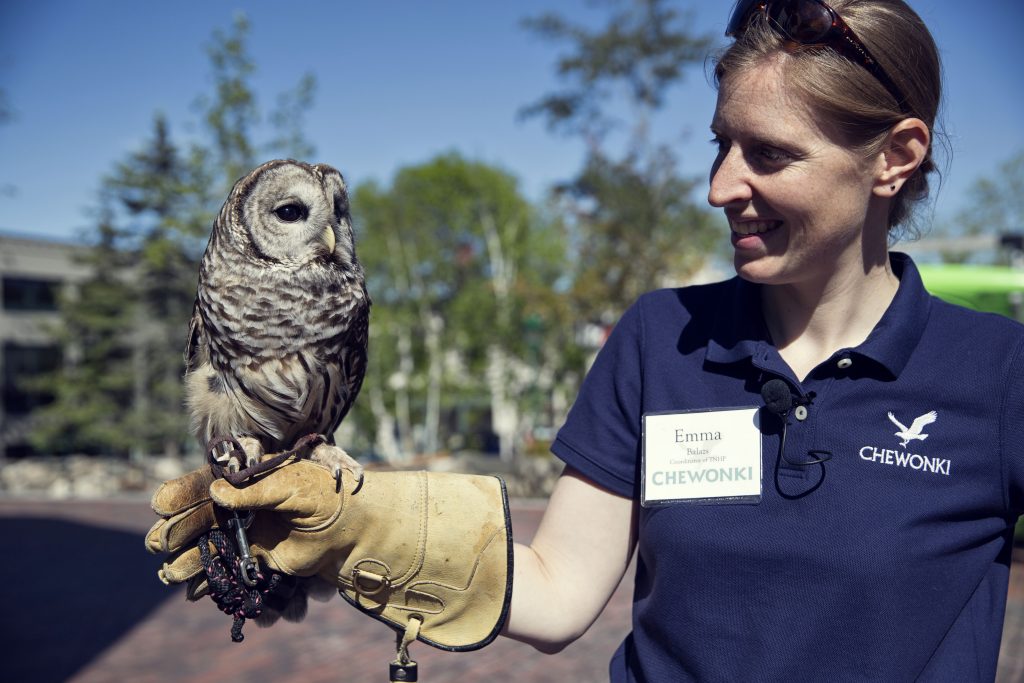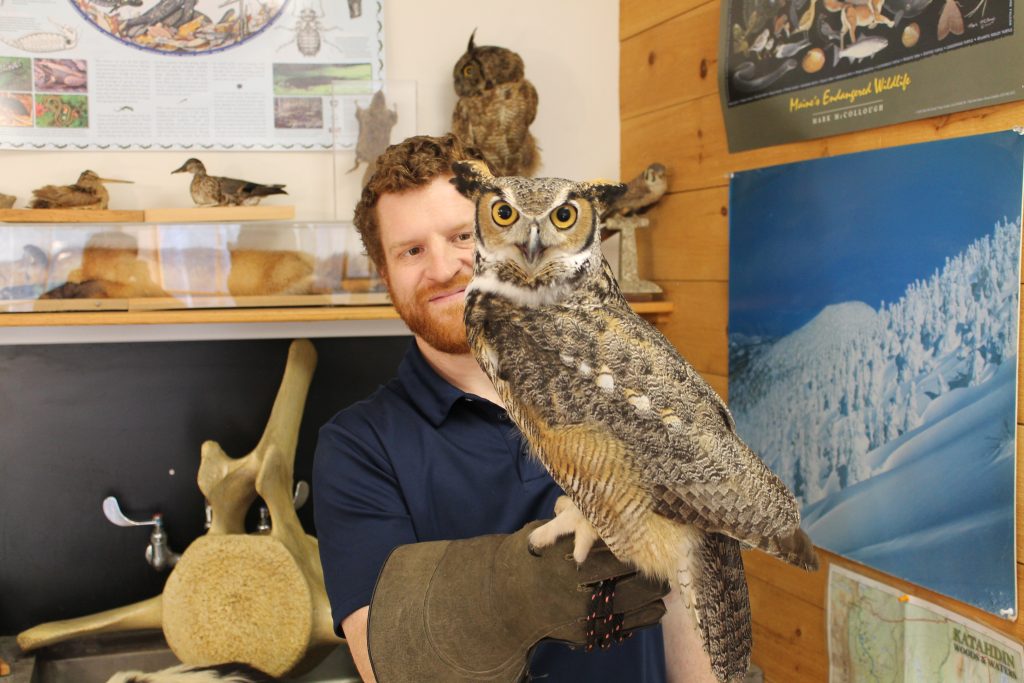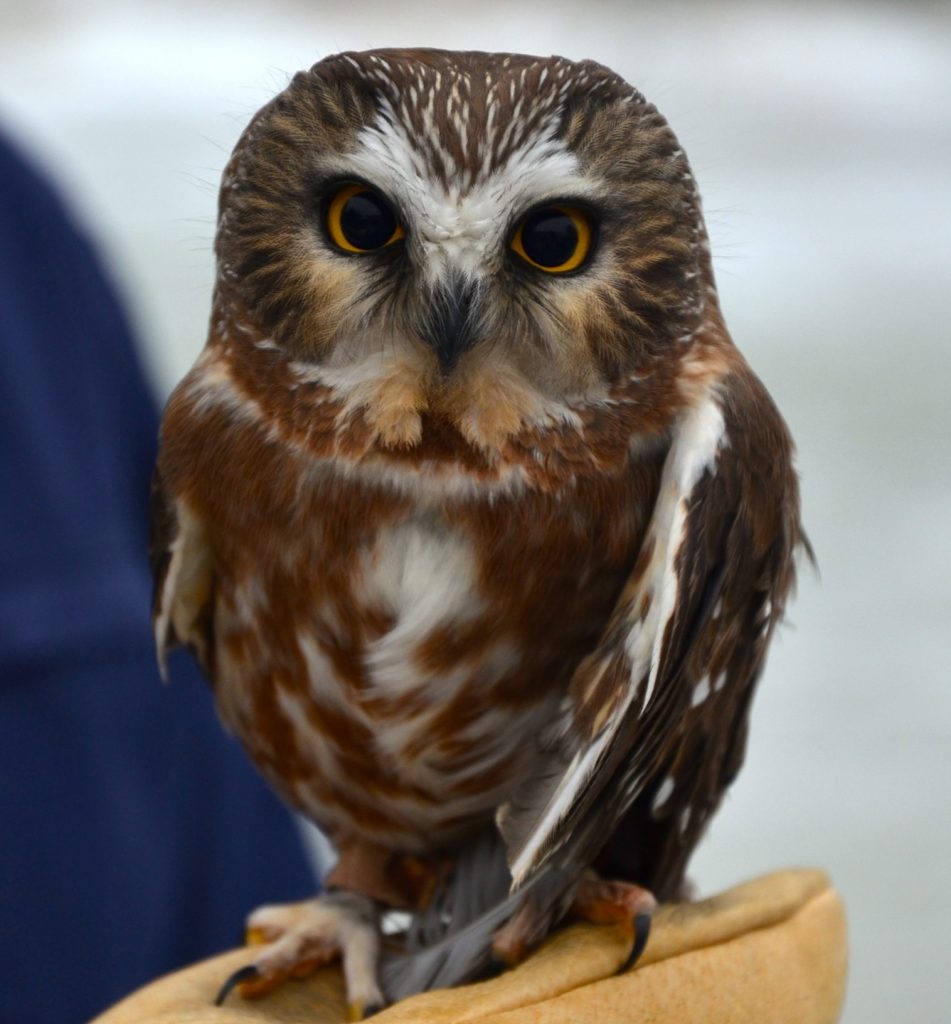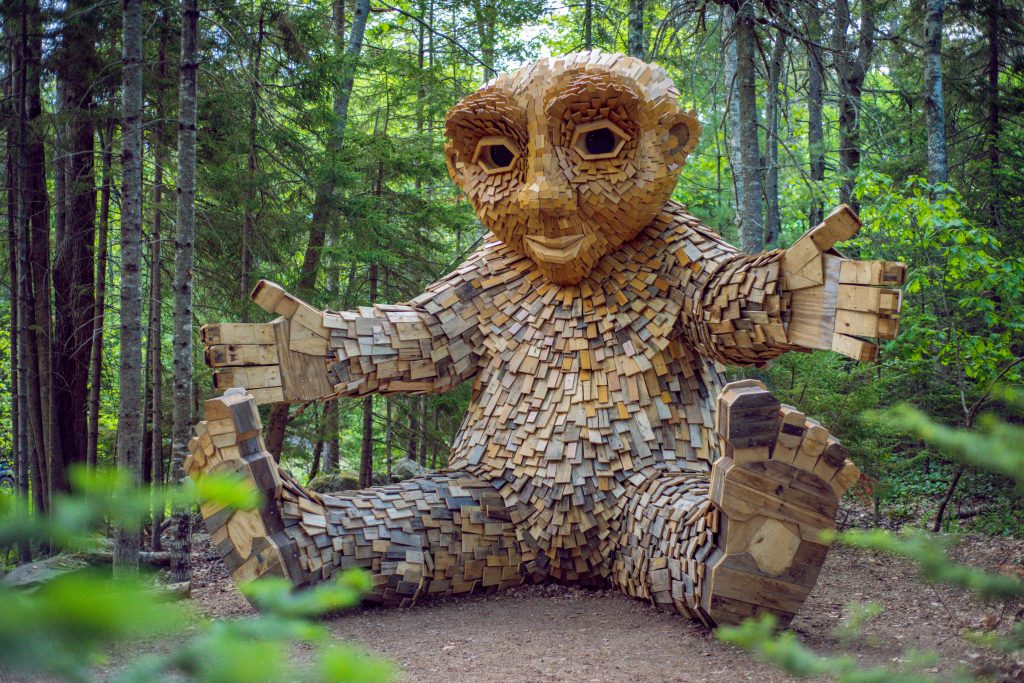Owls in your (Maine) Backyard
In fact, the Pine Tree State is home to all kinds of wildlife that depend upon our healthy forests for their survival—that includes 11 species of owls. These species live here or visit for all or part of the year, and they can be found in both dense and open forests and in woodlands, as well as in more urban environments like golf courses, cemeteries, and the edges of woodlots. Owls are nocturnal predators, swooping down silently to capture their prey, and their calls can be hoots, screeches, or whistles, depending on the species.
Because owls hunt at night and are often roosting in trees or nest boxes during the day, typically in a location chosen for maximum concealment, you are more likely to hear an owl rather than see it. You might find signs of an owl beneath a favorite roosting tree in the form of whitish droppings and regurgitated pellets. Owls tend to consume their prey whole, and they must regurgitate the pellets, which are full of indigestible parts like fur, feathers, teeth, bones, and insect exoskeletons.
Great horned owls are one of the most common owl species in North America, and they are the most common owl species in Maine, followed by the barred owl. Great horned owls live throughout the state, and, when spotted, are easily identifiable by their large ear tufts or “horns.” Their diet usually consists of small rodents like mice, as well as skunks, geese, and hares. They also sometimes eat insects, fish, carrion, and other smaller raptors. Fun fact: according to Maine Audubon, great horned owls are thought to be Maine’s earliest nesting bird!

If you’re fascinated by owls—and other Maine wildlife—the Chewonki Foundation is coming to the Gardens for four single-day naturalist residency programs focused on animals and their amazing adaptations. These programs are free to all guests with admission and will include Mammals of Maine (June 28), Biomimicry (July 19), Owls of Maine (August 2), and Bats of the World (August 23).


